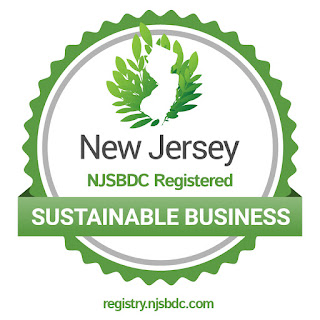Sustainability Policy
We believe in being a responsible corporate citizen and as such we consider the environmental, social, governance and economic impacts of our decisions. We believe that everyone has a role to play in protecting natural and social capital and that all of us need to be concerned with ensuring that the earth’s resources are available to sustain future generations with a similar quality of life. We believe in business and social ethics and acting in accordance with all laws. We believe in the human rights of our employees and contractors and seek to provide a workplace free of discrimination and to provide wages and benefits in accordance with applicable laws.
Environment
1. Measure carbon footprint data annually.
2. Track resource usage water, electricity, natural gas, mileage
3. Utilize renewable energy resources.
4. Employees are encouraged to conserve resources through reusing, recycling, energy conservation.
5. Disposable water bottles are not used in our office. We offer guests glasses of filtered water.
6. Employees are encouraged to minimize carbon emissions from travel through the use of flexible work arrangements where permitted by clients.
7. We seek to identify suppliers that have sustainable standards.
8. Total Carbon Footprint 6.4 tonnes CO2e
9. Carbon Intensity: 1.6/ employee compared to 3.5 for office based employees
Voluntarism
1. Our employees are involved in community, professional, and board service focusing on governance, leadership, skills development, and mentoring.
2. Firm volunteer hours are 320+ valued at $80,000.
People
1. We value our people and our wages, benefits, and work standards comply with applicable laws.
2. We seek to provide an environment that respects employee diversity.
3. We do not use child labor, forced or bonded labor, and we provide a workplace free of harsh or inhumane treatment.
4. We encourage community and professional voluntarism.
5. Feedback from employees to promote sustainable solutions is encouraged.
Business Ethics
1. We employ fair business practices and all corruption, bribery, and embezzlement are prohibited.
2. Information has been distributed to employees on our policies and those of our clients including codes of conduct, confidentiality agreements, and corporate citizenship policies.
Highlights 2019 Sustainability Report
We continue to meet our goals of reporting on our environmental and social impact. In addition, we continue to promote sustainable practices through education and speaking opportunities. In addition, we work with students to encourage sustainability ideals in our future generations. We also to provide volunteer opportunities and allow our employees time to pursue volunteer interests.
1. Kristina Kohl is on the faculty at the Bard MBA in Sustainability Program teaching “Employees and Organizations” focusing on embedding environmental, social, and governance standards into organizational culture.
2. Kristina Koh spoke at number of events and webinars for groups such at Great IT Pro, Wharton Alumni Social Impact Club, Wharton Club of NJ, Ultimate Software Women Leaders Forum, and PMI.
3. Served on the Wharton People Analytics Start-up Competition Judges Panel.
4. Morris was featured guest on RT TV talk shows informing the audience about corporate social responsibility, sustainability and the impact of human capital management for driving employee engagement.
5. Served as mentor for local middle school students as part of a competition for their capstone sustainability project.
6. Served on local community and professional boards. Provided mentoring and job counseling assistance.
7. Reduced Landfill Waste:
a. Paper Recycling
b. HP Smart Ink and Cartridge Recycle
c. Reusable Water Bottles
d. Electronics Recycling
8. Identified Additional Key Suppliers and Highlighted Sustainability Information
9. Maintained NJ Registered Sustainable Business Status
2020 Goals
1. Continue to report on ESG performance
2. Continue to promote sustainability initiatives through education, activities, and speaking
3. Continue to promote voluntarism among employees
4. Consider additional hybrid vehicle
5. Consider purchasing carbon offsets for client travel
6. Assist clients address COVID19 challenges through education, webinars, partnerships and services.
Key Suppliers
a. Sprint
b. Staples
c. Horizon Blue Cross
d. Hilton
e. Wells Fargo
f. HP
g. Apple
h. American Airlines
i. Go Daddy



